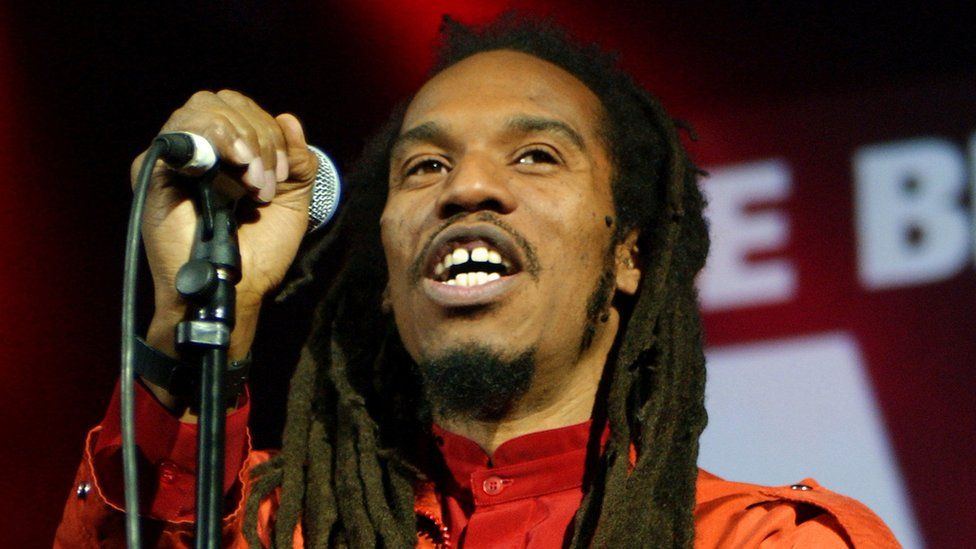-

-
-
Loading

Loading

Benjamin Zephaniah was a highly influential figure known for his way with words. He was a deep thinker, incredibly prolific, and never shied away from speaking his mind. Whether he was writing, speaking, or singing, words flowed effortlessly from him. In his autobiography, he referenced the Bible's opening verses by saying, "In the beginning was the word, and the word became poetry, and I discovered it and found that it was great." Throughout his life, Zephaniah had various missions, some of which were political and others personal. From a troubled childhood, he found solace and power in communication. Despite leaving school at 13 without the ability to read or write, he quickly rose to fame in the world of dub poetry, a form of performance poetry originating from Jamaica. His creativity and passion were evident, although he admitted to going through a rebellious phase that led to his imprisonment for burglary in his late teens. In 1979, at the age of 22, Zephaniah decided to make a fresh start in London after moving from Birmingham. It was there that he found a community of creatives who inspired him. The publication of his first poetry book, Pen Rhythm, in 1980 marked the beginning of a long and celebrated career. Zephaniah aimed to redefine poetry and bring it to life. He wanted it to reflect the present moment and address the issues affecting society. He believed that poetry provided him the freedom to express himself, leaving room for imagination and allowing him to be as raw as he desired. His performances were a source of pride for his mother, who saw her son truly come alive on stage. Growing up in Birmingham with his parents and seven siblings, Zephaniah had a difficult relationship with his father. The memories of his father's abuse towards both him and his mother were painful. When his father passed away, his siblings saw him as a hero for raising them alone, which caused tension in the family. The murder of his cousin in police custody in 2002 had a profound impact on Zephaniah. It made him even more passionate about speaking out against racism and injustice. He believed that black people were not defined by their historical oppression but rather by their pursuit of justice. In some of his poems, he addressed the long road black people have traveled from slavery to liberty. Zephaniah rejected the offer to become an Officer of the Order of the British Empire in 2003. He saw the word "empire" as a reminder of slavery and centuries of brutality, which had disconnected black people from their true heritage. He was proud of his Jamaican roots and aimed to challenge stereotypes and misconceptions about black men in England. Sports played a significant role in Zephaniah's life. He was a dedicated Aston Villa fan and continued playing football with an under-30s team well into his 60s. Despite his talent and love for running, he stopped participating in races as a child due to racial taunting from his teammates. At the age of 21, Zephaniah discovered that he was dyslexic. Instead of letting it hinder him, he encouraged others with dyslexia to see it as a unique attribute rather than a measure of intelligence. He believed that there were countless successful individuals who were dyslexic, including Albert Einstein. Finding a sense of belonging and forming connections with others meant everything to Zephaniah. He emphasized the importance of surrounding oneself with positive influences and good company. His live shows allowed him to establish deep connections with his audience, and he cherished the stories people shared with him. As an optimist, Zephaniah believed in the triumph of good over evil. He had faith in humanity's potential to create change and rise above adversity. He also had a spiritual side, highlighting the significance of personal meditation in establishing a connection with a higher power. Animal rights and veganism were causes close to Zephaniah's heart. He became an ambassador for the Vegan Society and advocated for the ethical treatment of animals. In his poem Talking Turkeys, he urged people to reconsider eating turkeys during Christmas, urging them to see the birds as friends rather than food. Zephaniah was a passionate advocate for taking action, no matter how small, to make a difference in the world. He encouraged people not to lose hope or be defeated by the challenges they faced. His message was clear: rise up, stand firm, and never give up. On December 16, 2021, Zephaniah passed away, leaving behind a legacy of profound words and a commitment to fighting for justice and equality.